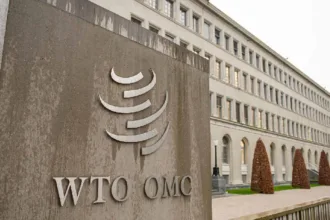In a revolutionary move towards a greener future, the Lieutenant Governor of Delhi, V K Saxena, has given the nod to the Delhi Motor Vehicle Aggregator and Delivery Service Provider Scheme-2023. This landmark scheme, approved on October 18 by the Delhi government and subsequently greenlit by the LG, is set to reshape the landscape of transportation services in the national capital.
A Paradigm Shift to Electric Mobility

The core tenet of the scheme mandates a comprehensive transition to electric vehicles (EVs) by April 1, 2030, for all aggregators, delivery service providers, and e-commerce entities operating in Delhi. This bold move aligns with the overarching goal of combating air pollution and fostering sustainable, green mobility solutions.
Key Highlights of the Scheme
- Safety and Regulation: The primary objective of the scheme is to bring aggregator platforms under government oversight, ensuring the safety of both passengers and customers. This regulatory measure aims to streamline operations and instill confidence in users.
- Phased Conversion to Electric Mobility: The scheme introduces a phased conversion plan, compelling commercial vehicle fleets to adopt electric mobility gradually. This strategic approach aims to reduce air pollution and accelerate the transition to sustainable transportation.
Also Read; Uttarkashi Tunnel Collapse: A Community United in Hope and Resilience 23
Delhi LG Targets for EV Adoption
Two-wheelers take the Lead
Under the Delhi Motor Vehicle Aggregator and Delivery Service Provider Scheme-2023, the targets for introducing EVs in the new fleet of aggregators are ambitious yet feasible. For two-wheelers, the goal is set at an impressive 100 percent, emphasizing the urgency of embracing electric mobility.
Three-Wheelers and Four-Wheelers Follow Suit
Aggregators with three-wheelers have a target of 10 percent EVs in their new fleet within six months, scaling up to 50 percent in two years and reaching 100 percent in four years. Similarly, those with four-wheelers aim for 5 percent EVs in six months, 50 percent in three years, and a full transition to 100 percent in five years.
Delivery Service Providers Embrace Change
Delivery service providers, a crucial component of the urban transport ecosystem, are also subject to the scheme’s stringent EV targets. For two-wheelers and three-wheelers, the targets mirror those of aggregator platforms, with a phased transition from 10 percent to 100 percent over four years. Four-wheeler delivery services follow a parallel trajectory, aligning with the broader goals of sustainable transportation.
Also Read: Huge Rush for India-Australia T-20 Match Tickets in Visakhapatnam: A Cricket Frenzy Unleashed
Bike Taxis: A Green Alternative Takes Center Stage
In a move that further underscores the commitment to eco-friendly transportation, aggregators are now permitted to operate electric vehicle-only bike taxi services. The scheme provides clear operational guidelines, ensuring a seamless integration of this green alternative into the city’s transport network.
Milestone Achieved: Premium Buses Join the Electric Wave
In a complementary development, the Delhi government recently notified the Delhi Motor Vehicles Licensing of Aggregator (Premium Buses) Scheme, 2023. This historic milestone marks a significant stride in India’s transportation sector, emphasizing the government’s commitment to embracing premium electric buses for a cleaner and more sustainable public transit system.
Conclusion
Delhi’s Motor Vehicle Aggregator and Delivery Service Provider Scheme-2023 is a watershed moment in the city’s battle against pollution and a proactive step toward a sustainable future. The comprehensive plan for EV adoption, coupled with safety regulations and the integration of green alternatives like electric bike taxis, positions Delhi as a frontrunner in the global shift towards eco-friendly urban transportation.






